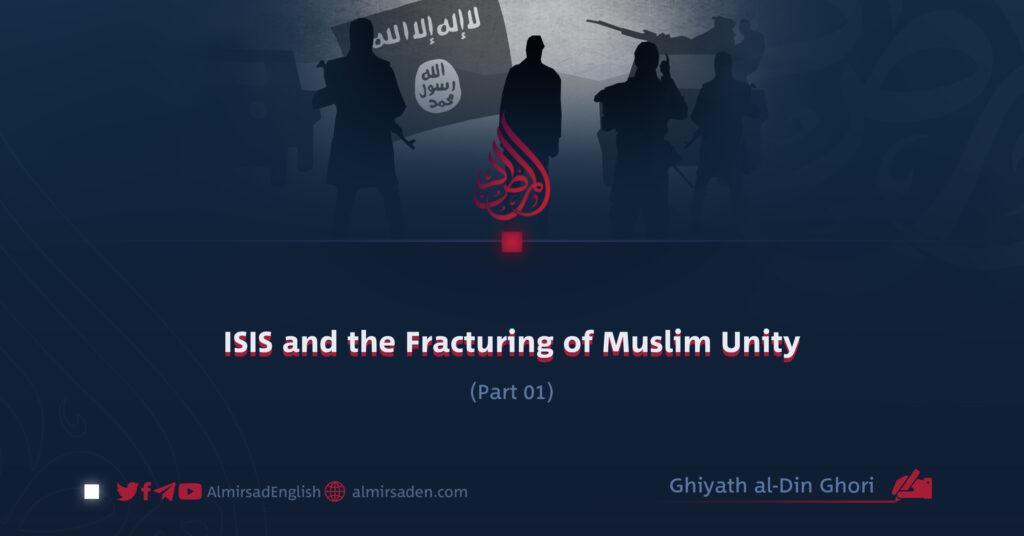Part 1
By Ghiyath al-Din Ghori
ISIS is not a new phenomenon. Its ideological, doctrinal, and behavioral roots stretch back to the earliest days of Islam, when a group known as the Khawarij emerged. Through shallow and extremist interpretations, the Khawarij tore apart the bonds of unity and brotherhood among Muslims. Today, ISIS revives that same mindset, and its actions threaten both the security and cohesion of the Ummah.
History makes plain that this takfiri current has inflicted immense damage. It has not only stained the reputation of Islam and spread poisonous influences within the Ummah, but also kindled the flames of division and discord. For centuries, one of the key strategies of Islam’s adversaries has been to exploit such factions, using them to fracture the community and tarnish the image of a pure and sacred faith.
A closer look reveals unmistakable parallels between the historical Khawarij and ISIS today. Both spring from the same ideological soil. The early Khawarij declared, “Judgment belongs only to Allah,” but their rigid and distorted interpretation of this principle led them to issue sweeping declarations of apostasy against Muslims and to take up arms against the very community they claimed to defend.
Instead of cultivating a deep and balanced understanding of the Qur’an and Sunnah, they clung to surface readings and lacked intellectual depth. Their defining traits included indiscriminate takfir against righteous believers, the routine use of violence, leniency toward genuine disbelievers, rebellion against just rulers, and the deliberate sowing of discord within society.
Their errors ran so deep that they even challenged the Messenger of Islam, Prophet Muhammad (PBUH). They rejected his noble example, turning away from the very guidance he embodied. Across history, they directed their hostility toward the most distinguished figures of the Ummah, persecuting scholars and preachers and often driving them to martyrdom.
ISIS, as the modern embodiment of the Khawarij, shows itself to be a continuation of the same ideology. With the support of enemies of Islam, it strikes at the foundations of faith, seeking to portray Islam to the world as a religion of terror and brutality. Its most determined effort is directed toward destroying the unity of the Ummah, which remains the foundation of Muslim dignity and the key to collective salvation.
In our own time, the hand of the enemy can be clearly seen. By fostering and supporting such extremist and ignorant factions, they have inflicted some of the harshest blows on Islam. Across many Muslim lands, these modern Khawarij have been used as tools to suppress genuine mujahideen and to weaken the unity of the Ummah, as seen in Syria and elsewhere.
During the American occupation of Afghanistan, this strategy took shape once again. As part of their failed designs, the occupiers cultivated ISIS-K, hoping to undermine the resolve of the Islamic Emirate’s mujahideen in their struggle against foreign armies and their agents. By carrying out savage attacks on innocent women and children, ISIS sought to present Islam as a faith of cruelty devoid of compassion, while preparing the ground for a fragile Western system to survive in Afghanistan.
Yet the mujahideen of the Islamic Emirate of Afghanistan (IEA), whose purpose was to seek the pleasure of Allah, to raise the banner of Islam, to establish an Islamic system, and to protect values and sanctities, did not allow those plans to succeed. They refused to permit ISIS to overstep its bounds or to serve the agendas of Zionists and other adversaries of Islam.
With the help of divine support, they humbled the occupiers and brought them low. By the grace of Allah, ISIS too has been driven toward defeat. InshaAllah, no group formed with the backing of foreign powers will again be allowed to spread rebellion, injustice, or discord among the scholars and the Ummah.
